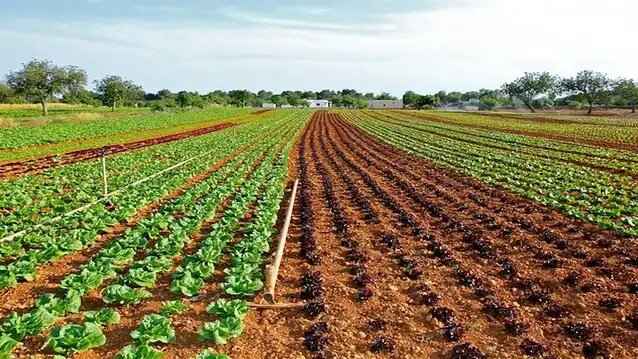
Nigeria will once again spend a significantly small portion of its budget on agriculture, short of a continental benchmark set 18 years ago to encourage African countries open their economies more to farming as one of several ways of guaranteeing food security and boosting economic growth.
The now famous Maputo Declaration came into effect in 2003 and Nigeria ratified the agreement the next year, agreeing with other African countries to set aside at least 10 per cent of its yearly budgets to agriculture. Nigeria has perpetually failed to abide by the treaty.
Under the Buhari administration, budgetary allocation for agriculture rose from 1.70 per cent in 2017 to 2.00 per cent in 2018, fell to 1.56 per cent in 2019, and 1.34 per cent in 2020, before recording a slight increase (1.37 per cent) in 2021.
In the proposed budget for 2022 presented by to the National Assembly last week, agriculture has just 1.8 per cent of the budget — the highest in four years.
Analysts have chided governments over the years for not doing enough to expand a sector that has the potential to rapidly become the pillar of national economic growth, despite professing their commitments to do otherwise.
“When I looked at the 2022 proposed budget for the agricultural sector, I felt so bad. This is the first time the budget went so high and I was expecting to see the agricultural percentage going high too,” said an agricultural communication expert, Obinna Chukwuezie.
“One of President Muhammadu Buhari’s objectives of the agricultural policy which ended last year is that the country is going to diversify. Is it 1.8 per cent that will diversify the economy?”
More than any other year in recent history, 2021 has shown how dire the consequences of mismanaging or failing to be to the sensitive to the dynamics of the agricultural sector can be, with food inflation reaching the highest levels in over a decade and thousands of smallholder farmers quitting as a result of rising insecurity and cost of supplies.
Since the return of democracy in 1999, the agricultural sector received its best funding ratio in 2008 and 2009 during the .
Mr Yar’adua assigned 5.41 per cent of the 2008 total budget to agriculture, and in 2009, he allocated 5.38 per cent.
Under Mr Buhari, the sector has remained underfunded despite the president’s repeated promise to revive it.
Ironically, Nigeria has recorded its highest annual spending in history under Mr Buhari. The 2022 budget has a total of N16.39 trillion — far above the less than N3 trillion the Yar ádua government spent in 2008.
In the 2022 budget, only N291.4 billion (1.8 per cent) is for the agricultural sector. This includes N71.8 billion for personnel cost, N 3.7 billion for overhead and N215.8 billion for capital expenditure.
Maputo Declaration
The Maputo Declaration came during the second ordinary assembly of the African Union in July 2003 in Maputo, Mozambique, when African heads of state and government met.
Through the declaration, the African Union (AU) enclosed several important decisions regarding agriculture, but the crucial among them was the commitment to the allocation of at least 10 per cent of its annual national budget to agriculture and ensure the growth of the agricultural output of at least six per cent annually.
Eighteen years down the line, Nigeria is yet to meet up in terms of commitment of resources to the agricultural sector, as indicated in the 2022 proposed budget.
Mr Chukwuezie said the country’s growing population makes it even more pressing for the government to pay attention to growing the agricultural sector.
“Currently, the population of the country stands at 200 million and observers say by 2030 we will be up to 250 million. This means that there is a need to produce more food and this is where the budget has a bigger role to play in achieving food security. So, if the government is not budgeting more for agriculture, more people will go hungry,” he said.
He urged the National Assembly to carefully consider the proposals submitted by the president and make necessary amendments to revive the agricultural sector.

